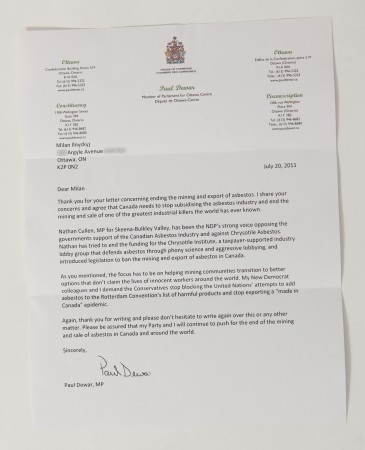One of the more entertaining segments in Douglas Adams’ extremely entertaining book Last Chance to See concerns Straun Sutherland, an Australian doctor who counselled Adams on the dangers associated with venomous wildlife in the region Adams was visiting. While definitely entertaining overall, Sutherland’s autobiography could have used more aggressive editing, particularly when it comes to deciding which accounts will be of interest to readers.
In particular, Sutherland devotes far, far too much time to giving his account of various bureaucratic disagreements at the laboratories where he mostly worked. About half the book consists of this. It may have been satisfying for him to lay out his version of events and settle some scores, but aside from the people directly involved in the incidents described, I doubt anyone in the world cared. If I ever write an autobiography, please insist on me removing all such material.
While he speaks at enormous length about bureaucratic squabbles, Sutherland generally only alludes to the more important personal aspects of his life. Dissolving marriages get brushed upon for one sentence, before he moves back to discussing bureaucratic politics at length. Similarly, his references toward the end of the book to his own neurological condition are somewhat unclear.
One frustrating thing about this book is Sutherland’s sometimes-playful-sometimes-maddening fondness for making improbable but possible claims. It may be harmless enough to claim that as a child he made one cinderblock bomb powerful enough to send another cinderblock bomb high enough to be “a little black dot high in the sky” (I suspect any explosion that powerful would have seriously injured or killed the child who initiated it). Similarly, to tell a story about a fellow sailor buying a watch that turned out to be powered by a cockroach attached to the machinery (surely more difficult and costly for a watch counterfeiter than just using a spring or motor). When he talks nonchalantly about a man about an aircraft carrier getting sucked into a jet engine, it isn’t clear if he is giving an honest account in a spectacularly understated way or whether he is telling a very dark sort of joke. In many parts of the book, it is hard to assess the reliability of the narrator, even about serious matters.
That story does connect to one of the more interesting things about the book – the accounts of deaths. It’s not something that happens to anywhere near the same extent in your ordinary autobiography. Characters are introduced and promptly die. Of course, doctors witness the deaths of many more people than members of the population at large. Venom doctors particularly, I expect. The descriptions of death did give me a better sense of what a life as a doctor might be like, and what kind of temperament is suited to it. While the subject matter is often morbid, Sutherland maintains a jovial tone. That is also what made the account of him so entertaining in Adams’ book.
One last quibble is that some of the science and medicine in the book could stand to be a bit more clearly and elaborately explained. Sometimes specialist terms are used as though the reader should already be familiar – which is a bit of a stretch, when the subject matter is venom chemistry or obscure aspects of human or animal anatomy.
The things I enjoyed most about the book are Sutherland’s account of his time in the navy, as well as his descriptions of menial jobs he took while in medical school. There are also some entertaining and enlightening accounts of the practice of medicine in various contexts, from a navy ship to a small community to a research laboratory. Sutherland is quite a character and an entertaining writer. It would have been nice if he had been a touch clearer about when he was being completely serious, and less focused on writing an account of the bureaucratic structure and history of the labs where he worked.

